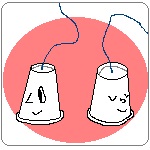風鈴さんの おぼえた日記 - 2016年6月18日(土)

この日記をフォローしているユーザ
この日おぼえたフレーズ(英語・中国語・ハングル)
おぼえた日記

Discrimination has no place in Japan 差別のない地日本へ Saturday, June 18
The so-called anti-hate speech law has come into force.
いわゆるヘイトスピーチ対策法が施行された。
When I first saw a hate speech demonstration, with marchers barking vicious slogans aimed primarily at Japan's Korean residents, I could barely believe my eyes. On the internet, too, people toss out discriminatory comments against other foreign citizens, against Japan's Ainu and Okinawan peoples, against those receiving welfare benefits and the disabled. There are those who spread false rumors that these people are getting unfair financial aid.
主に在日韓国・朝鮮人の方に対して差別的言動を大声で叫びながら集団で道路を歩くヘイトスピーチデモを最初に目にしたときは「まさかこれが現実とは」を目を疑った。さらにネットには、ほかの国の人たち、日本人であるアイヌ民族や沖縄の人たち、生活保護を受給していたり障害を持っていたりする人たちに対しても、平気で差別の言葉を投げかけたり「不当に手当をもらっている」といったデマを拡散したりする人たちがいる。
The new hate speech law is what you might call a "principle law," as it has no provisions for punishing violators. Furthermore, it only protects "those originally from nations outside this country" who are "living legally in Japan." As such, it does not outlaw discrimination against Japanese citizens or foreigners applying for refugee status, among other groups. However, the supplementary resolution that accompanied passage of the law states, "It would be a mistake to believe that discrimination against groups not specifically mentioned in the law is forgivable." I suppose we can say that the Diet essentially stated, "Discrimination is unforgiveable in Japan."
今回の法律は理念法と呼ばれ、実際にそれを破った人に罰則を与えるものではない。また、その対象が「本邦外出身者」「適法に日本に居住する人」となっているので、日本人で差別を受けている人や難民申請をしている人などは該当しないことになっている。ただ、法律とともに出された「付帯決議」には「定義以外のものであれば差別は許されるというのは誤り」とあり、国会が「日本では差別は許さない」と認めたと考えてよいだろう。
In fact, I have a lot of people struggling with discrimination come to my practice; people discriminated against because they are foreigners, because they are ill, because they are single mothers. Some are treated unfairly at work or in the areas where they live, are looked upon with frigid eyes that seem to say, "You are not like us," all for some aspect of themselves that they cannot change.
診察室にも差別で苦しむ人は大勢やって来る。外国人だから、病気を持っているから、シングルマザーだから。本人にはどうしようもないことで「あなたは私たちとは違う」と白い目で見られ、職場や地域で不利な扱いを受けることもある。
What's more, the reasons given for this prejudice are usually untrue. For example, the romantic partner of one of my patients didn't want to get married "because depression is inherited." This is simply not true, and in the end I had the couple come in together to explain things. When the session was done, the reluctant party was reluctant no more, leaving with a smile and promising to "explain this to my parents as well." Arbitrary "those people are all so-and-so" labels are very often founded on basic errors of fact.
しかもたいていの場合、差別の理由として考えられていることは間違いだ。たとえば、「うつ病は遺伝するから」と結婚に反対された患者さんがいたが、婚約者にも来てもらってそれは誤りであることを丁寧に説明したら、「わかりました。両親にも説明します」と明るい顔でこたえてくれた。「あの人はこれこれだから」という決めつけのほとんどは、こういう単純な間違いに基づいている。
I have read a paper based on research conducted outside Japan that showed that ethnically diverse workplaces produce more creative ideas than those dominated by a single race or nationality. In contrast to working with people who understand one another from the get-go, getting people with wildly varying perspectives and ways of thinking together in one place apparently sparks the easy flow of groundbreaking ideas.
海外の研究で「ある会社で、同じ国籍、民族の人ばかりの部署より、多様な人々が集まった部署のほうが創造的なアイデアが多く出た」という論文を読んだことがある。いろいろな考え、立場の人たちと一生懸命コミュニケーションするほうが、最初からわかり合っている関係で仕事をするよりも、刺激が多く画期的な意見が出やすいというのだ。
So, talk to someone different than yourself. Even if that's impossible right away, you will come to understand one another somehow. It's time to put an end to knee-jerk hatreds, to discrimination and pushing away our fellow human beings. With the new hate speech law, Japan has finally become a country where we can say, "We will not tolerate discrimination." (By Rika Kayama, psychiatrist)
自分と違う人と話そう。すぐには無理だとしても、なんとかわかり合おう。最初から毛ぎらいしたり差別して追い出したりするのは、もうやめよう。法律ができたことで、ようやく日本も「私たちは差別を許さない」と宣言する国の仲間入りができた。(香山リカ 精神科医)
風鈴の主張
イギリスのEU残留を主張していた女性国会議員が極右に暗殺された。
自民党の国会議員が民進党の蓮舫議員は帰化して泣いたと発言した。
これらの根っこ、思想はヘイトスピーチをする人や差別主義者と同じである。移民排除をすべきといういう勢力は物凄い勢いで増えており、国論が真っ二つに分かれている。アメリカのトランプ氏やイギリスのEU離脱の動きからも分る。
没からチョウの写真 その3 アゲハチョウ
風鈴はチョウの写真は2,30枚あるが、ほとんどはアオスジだ。その他の10枚ぐらいの中に、掘り出し物を探した。昨日チーさんの俳句から、トランプの文様ようなチョウ、本物のチョウですが、2次元の文様のようなチョウの写真です。
アゲハはモンシロチョウより少し高いところを飛びます。単独でひらひら飛んでくる。ときどき、2羽がで会うと、空高く飛んでいくことがある。恋の季節?その2羽を追っかけるアゲハもいる。3羽が高く、高く舞い上がる。トンビみたいに・・・連続写真みたいですが3羽のアゲハです。















やはり、チョウが高く飛ぶのは 恋なんでしょうね。先頭がメスのチョウであとを追うのがオスでその後にちょっかいをだすオスでしょうね。
夏蝶の放ちしごとく高くとぶ 阿部みどり女
アゲハチョウは風鈴の家の山椒にもときどききますが、裏の家の柑橘系の木に来ます。アゲハだけでなく、黒アゲハで青いのもときどき来ます。アゲハはほとんど花や木に停まりません。蜜を吸うときも、ホバリングです。風鈴は数枚アゲハの写真をアップしたことがあります。とてもキレイなアゲハです。これは、風鈴のアゲハです。さなぎから羽化した瞬間の写真だからです。羽化したばかりのアゲハは飛びません。飛んでも直ぐ帰ってきます。アゲハチョウはよく見ますが写真に撮るのは意外と難しいです。
「弱い犬ほどよく吠える」という言葉を思い出しました。ヘイトスピーチに参加している人達は、自分に自信がないのでしょうね。
すご~い、没からの復活、よかった~
風鈴さん、「没」などとおっしゃらないでください。
もっと見せてください。
動いているチョウを撮るのはとても難しいです。チョウを見てカメラを向けても、もうどこかに飛んで行ってしまいます。
最近ドラゴン1023さんに教えていただいた方法で、動いているチョウの撮影に成功しました。家人になんの写真?といわれていましたので没にしていました。
めまぐるしく動く蝶なのに、風鈴さん写真を撮るのがお上手です(^^♪
これが「没」だなんて…